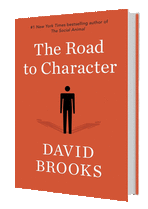
The biographies told in “The Road to Character” by David Brooks often centre on the idea of vocation. I first heard the word vocation in Grade 10 when our high school guidance counsellor walked us through the wonderful book by John Krueger “Discovering Your Vocation: A Student’s Guide to Discerning God’s Call”. What I hadn’t considered, up to that point, was that God’s call on one’s life includes more than those called to be pastors – God has a vocational call for all His creatures.
Brooks, when relating the story of Viktor Frankl, the Austrian Holocaust survivor, claims that “A person does not choose a vocation. A vocation is a calling. People generally feel they have no choice in the matter. Their life would be unrecognizable unless they pursued this line of activity” (p. 24). Considering the subject of the sentence, it is a poignant statement. However, the conversations I’ve had with principal colleagues in Christian schools in many places, and certainly my own experience, has confirmed this. Many of us have felt pulled, pushed, and often prodded in the direction of this specific ministry that is Christian education.
There are days that this position feels overwhelming. There are demands on my time and my mental space that are not easily resolved. A sense of vocation, though, helps me to put this work into perspective and offers me the encouragement I need. Brooks says it well: “if you do it for God, you will never grow discouraged. A person with a deep vocation is not dependent on constant positive reinforcement. The job doesn’t have to pay off every month, or every year. The person thus called is performing a task because it is intrinsically good, not for what it produces” (p. 44). This book is full of chronicles about lives spent working out God’s call. They are messy, imperfect lives which, if you’re anything like me, will find resonance with your experience. May your encouragement be, as it is for me, that your career is a vocation and that your messy, imperfect work is intrinsically good.

 RSS Feed
RSS Feed
